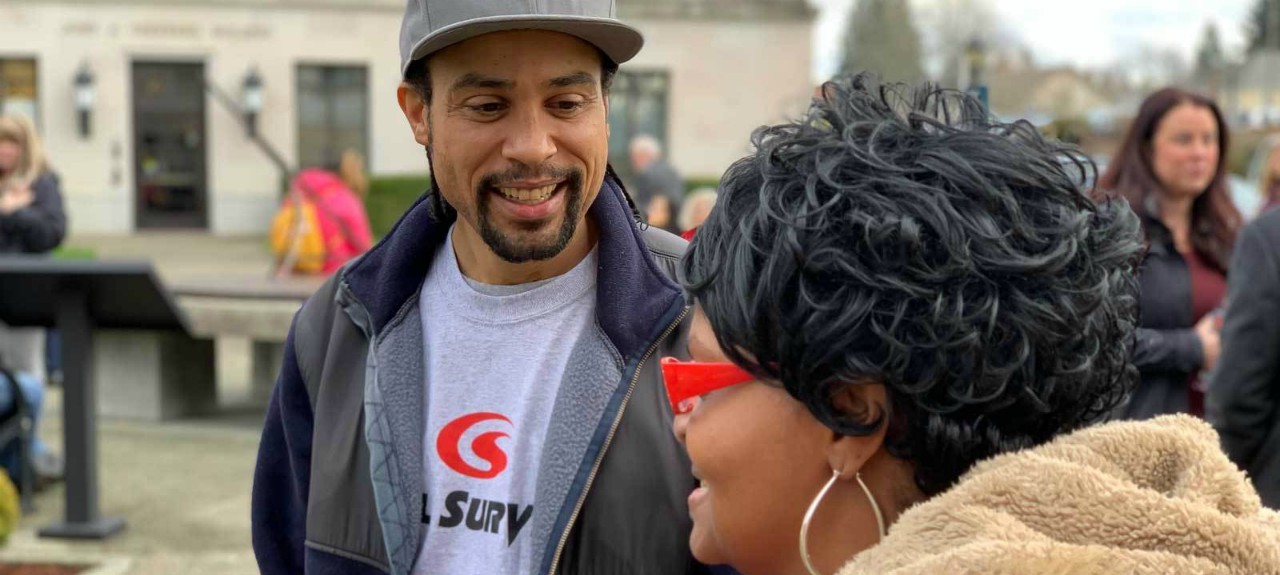Civil Survival organizes, educates and empowers individuals impacted by the criminal justice system
By Dionne Foster, Program Officer
Most of us believe in second chances. We believe that we’re human, we make mistakes, we learn from them and we try again. We get a rebound, we get a second chance.
But our criminal justice system does not support giving people second chances. So for people whose mistakes result in jail time, people who are coming home after they’ve done their time— their shot at a second chance is full of barriers to reintegrating and reconnecting with their families and communities. And given that nearly one in four people in our state has been involved in the criminal justice system, barriers to community reintegration have a major impact on many people, and disproportionately on people of color. Those barriers can be so limiting that 8% of people exiting incarceration enter directly into homelessness.
So what are some of the barriers people face when they leave prison?
First, it’s very hard to vacate a conviction and erase it from criminal history, even once all the terms of a sentencing have been satisfied. As long as a conviction is on someone’s record, that person will have trouble getting housing, jobs and professional licensing, or even passing background checks that will allow them to volunteer at their children’s schools.
Second, once people complete their sentences, they face challenges in getting their certificates of discharge, which restore their civil rights. Under current law, a certificate of discharge is the documentation needed to fully restore the right to vote or participate on a jury. The courts are supposed to issue these when an individual completes all of their conditions of a sentence, but this is not routinely happening, in part because the burden is on former justice-involved individuals to provide proof of completion to the court clerk that they finished their treatment requirements or community service hours. Loopholes like these leave the most marginalized people without a voice in the political and legal system that continues to make policies about their lives.
Third, our archaic legal system can force people to wait decades to clear their convictions, creating a situation where someone can spend their entire life being haunted by a mistake they made decades earlier.
Tarra Simmons was one of those people. Tarra served two years in prison and when she came home she faced all of the barriers inherent to a person with a criminal record. She had to pay thousands of dollars in legal financial obligations, she couldn’t find employment or housing, and was losing custody of her children. She saw her entire community of others with criminal records suffering with the same lifelong consequences and barriers to reentry.
Tarra decided to go to law school to learn how to change the laws that held her and her community back. She found a way to put herself through law school, only to be told her background made her unfit to practice as a lawyer. She had to take her case all the way to the Washington State Supreme Court in order to be permitted to practice law. It was national news when the Supreme Court ruled unanimously in her favor within hours of the closing argument.
After that experience, she could have gone on to do many things. But Tarra chose to co-found Civil Survival in 2015 with the goal of organizing, educating and empowering individuals who have been directly impacted by the criminal justice system. Civil Survival is led by the community that it serves; members and staff all have been incarcerated. Through Civil Survival, they are trained to be active participants in the political process, including testifying before judges and lawmakers and helping to pass significant statewide legislation. Civil Survival models exactly what we mean when we at SeaFdn say that the communities closest to the problem are the ones with the best solution.
When we talk about a healthy community, or fighting for racial and economic justice, helping formerly incarcerated people reach their full potential and return to their families and communities is integral to the wellbeing of all of us. There are hundreds, if not thousands, of individuals like Tarra out there—people with tremendous vision and potential for impact—but they need to be given that second chance.
Seattle Foundation began investing in Civil Survival in 2018, starting with a small $6,000 grant. Over the last year and half we’ve invested almost $150,000 in this small and mighty organization. With a staff of two, and a network much larger, Civil Survival has already made major change in our state.
In just its fourth year, Civil Survival successfully lobbied for the passage of the New Hope Act in the spring, a law that the organization estimates will benefit tens of thousands of people. This legislation reduces the amount of time it takes to go through the process of vacating a conviction and expands the types of convictions that can be removed from someone’s criminal record. The New Hope Act means those coming home from prison will face less discrimination in employment, housing, and community service.
In March, Civil Survival was honored by the League of Women Voters’ Making Democracy Work Award for its efforts to make ours a more just society. In May, they were honored with the Washington State Association for Justice Gerhard Letzing Public Justice Award. The group is building capacity, organizing in various communities across King County and the state, providing additional leadership and training opportunities for more of its members, and implementing the New Hope Act both through legal education to its own community and gearing up for additional legislative campaigns to promote second chances.
SeaFdn is proud to have been early investors in Civil Survival and we are excited to see how this organization and community of formerly incarcerated peoplecontinue to improve our democracy when they get a second chance.
Tarra Simmons, Jonathan Cunningham and Aileen Balahadia contributed to this story.

